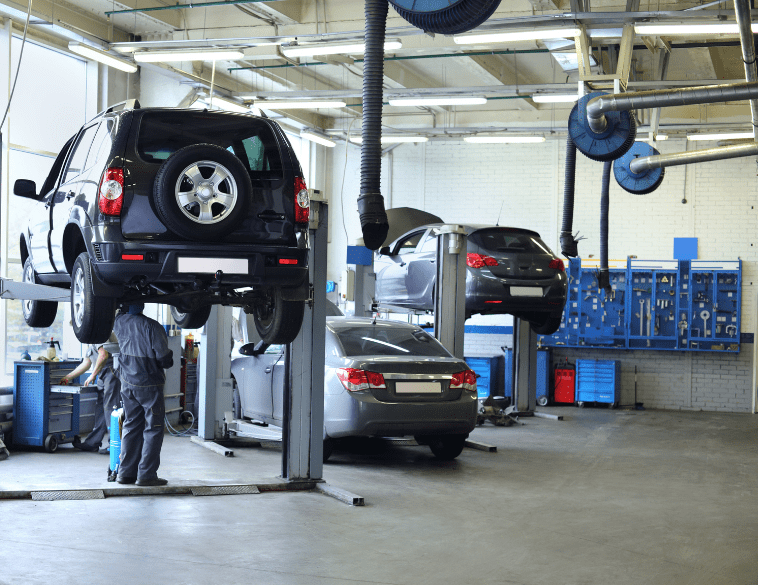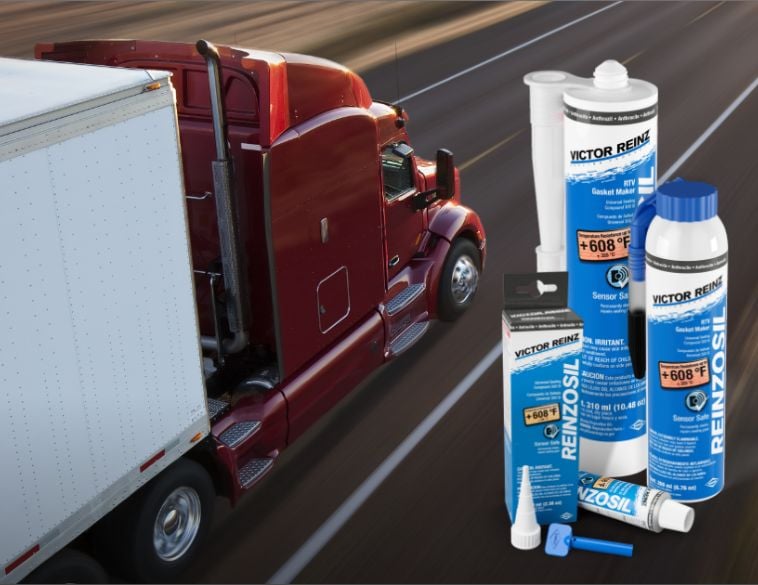Downtime is lost time for any fleet. Whenever a fleet vehicle is in the garage for repairs, it’s not out on the roads making money for the organization.
Planning ahead to minimize downtime is a key preoccupation of today’s fleet managers. However, keeping vehicles out of the garage is a team effort, according to Vincent Boldrini, Supervisor, Fleet Management Support, Canada for ARI.
“Communication between the drivers and the fleet team is key,” Boldrini explains. “By asking the drivers questions about what can cause them issues, [management] will be better equipped to make decisions on which parts to stock.”
Depending on the size of the vehicles in the fleet, Boldrini adds, management will want driver input from a pre and post-trip inspection where the driver itemizes what might be broken or damaged.
“If the in-house shop is fixing this, they’ll have to stock that part or source it from an OEM or the aftermarket. They’re gonna start to realize, ‘Hey, every day we’re fixing a taillight, or every day we’re fixing a mirror. I have to deal with downtime by sourcing the parts. So, if I stock that part, I can fix it more quickly and the driver can be on his way.’ And that’s the communication they have to have.”
While this approach may be most effective with fleets made up of larger vehicles where pre and post inspections are mandatory, Boldrini doesn’t see this same approach working with sales fleets, for example. In those cases, he says, an in-house garage isn’t usually cost-effective.
The fleet is better off going to a local dealer or to an aftermarket garage for repairs.
“If you’re using external vendors we strongly encourage you to limit the number of vendors so they get to know you and your fleet and the vehicles that come in,” explains Shawn Morris, Director, Fleet Management Services, ARI.
“You want them to know you, your vehicles, and which parts are likely to be needed more regularly, so they always have them in stock when you need them.”
Boldrini adds that it may make sense to pay a premium with a particular vendor, just so you have priority service, whenever you need it. You’ll pay a bit more, but the reduction in downtime may be well worth it.
Remote fleets & upfitted vehicles
That said, there will be times when it will make sense for even a sales fleet to have an in-house garage for repairs.
According to Boldrini, “if the fleet is located in a rural area where the dealership is hours away, it would be advantageous for the fleet to have knowledgeable mechanics and the parts inventory to repair vehicles. If the fleet is in a metro area, there might be a number of dealerships around to service that fleet, so parts availability will not be a factor. So if they’re out in the boonies, and there’s no proximity to repairers, you might want to stock some of the common parts.”
Besides, if you have an upfitted vehicle, which has a commonly replaced part, and you have the capacity as an in-house shop to fix it, then Boldrini recommends stocking that specific part. “But if it’s a complex repair,” he adds, “and it’s a $4,000 part, why would you stock that on your shelf?”
Grant Chitty, Account Manager for Foss National / LeasePlan Canada agrees that in-house repairs don’t usually make sense financially. “I’ve got an electrical company in my portfolio,” he explains. “They have an in-house mechanic, but they have no idea what the in-house mechanic costs them. My experience with in-house repair facilities is that they’re far more costly than fleets are able to account for accurately.”
He adds that in-house facilities, along with all the parts they might want to stock, make sense when you have a sizeable fleet, like a gas or electric utility, with a central hub. “But when it comes down to the smaller companies that might have 100 or 200 vehicles, and they have their own in-house repair facilities, they’re never able to really establish what their real costs are,” he concludes.
A minimalist approach
As far as stocking parts goes, most industry experts agree the less the better. Sasha Arasteh, Mobility Services Manager for Shell Fleet Solutions, North America, recommends items like light bulbs and filters.
“I would call these lower-cost items,” she says. “They’re not as costly or as big as tires or larger parts. Even a battery, perhaps, depending on your storage capabilities. Not every fleet may be equipped to store certain parts, so I think that has to come into play as well.
“Some of these routine types of things that could cause a check engine light to come on, or cause a driver to notice it on a pre-trip inspection and say, ‘Oh, I can’t get on the road.’ From a safety standpoint, I do think there’s a couple of those type of parts that you would want to stock.”
For the most part, she adds, most fleets will source the parts they need from nearby dealerships or the aftermarket, whenever the need arises. “That’s just because there are so many elements to the maintenance of a vehicle,” Arasteh adds.
Preventing problems
While relying on a driver to inform the fleet manager about a broken or defective part makes sense, some fleets are going a step beyond to spot problems as early as possible, thus minimizing downtime even more.
Shell, for example, offers a telematics solution that tracks potential problems in real-time.
“You can see things like engine light status,” Arasteh explains “So if there’s any engine error code popping up, instead of going to a dealership and paying for a costly diagnostic tool to tell you what the problem is, using something like Shell Telematics allows a fleet manager to say, ‘Okay, an engine light is on. I can see that over here on my dashboard. Let me get in contact with my driver, and let’s get this addressed now.”
Whether your fleet should stock parts and fix vehicles in-house or turn to dealerships and the aftermarket in times of need is a question each organization must answer on their own.
That said, consider the issue of stocking parts “just in case” they’re needed… because that option won’t always make financial sense.



